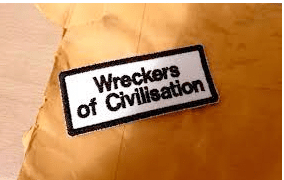It’s all too depressing….and very scary
Key cases on the Supreme Court’s docket next term
The U.S. Supreme Court issued the final two opinions of its term on Thursday, capping a month of blockbuster decisions from the nation’s high court in cases involving key issues such as gun rights, religious liberty and abortion. And the court’s next term, which begins in October, could prove to be just as pivotal.
Here are the key cases the Supreme Court has agreed to take up this fall and the issues they involve:
Race in college admissions
The Supreme Court has agreed to hear two cases involving the use of race in college admissions at the University of North Carolina and Harvard.
In both cases — which were consolidated by the high court — a group called Students for Fair Admissions is seeking to overturn decades-old Supreme Court precedents that let universities consider race to help create a diverse student body.
In a 2003 decision (Grutter v. Bollinger), the Supreme Court reaffirmed that universities can take race into account when determining admissions. In its appeals, the group called the Grutter ruling “immoral.”
In the Harvard case (Students for Fair Admissions v. Harvard), the group is accusing the private university of favoring Black and Hispanic applicants over Asian Americans, and in doing so violating Title VI of the Civil Rights Act.
In a statement, Harvard president Lawrence Bacow said the court’s decision to review the case “puts at risk 40 years of legal precedent granting colleges and universities the freedom and flexibility to create diverse campus communities.”
“Considering race as one factor among many in admissions decisions produces a more diverse student body which strengthens the learning environment for all,” he said.
In the North Carolina case (Students for Fair Admissions v. North Carolina), the group argues that the public university’s consideration of race in its undergraduate admissions process violates both Title VI and the Constitution.
In a statement, the school said it considers race in admissions only if the student chooses to disclose it.
“Our holistic undergraduate admissions process evaluates each student in a deliberate and thoughtful way, following the letter and spirit of the law,” the school said. “We do not use quotas or formulas to admit students, and we do not discriminate against any applicant or group. All our students earn their place at Carolina.
“… We do not use race or ethnicity as a dominant or defining feature,” it added. “We only consider that information if a student chooses to share it. Even then, we consider race or ethnicity flexibly, as one factor among many, in assessing all we know about an applicant.”
Gay rights
The court also agreed to hear an appeal from a Colorado website designer who is refusing to create webpages for same-sex weddings because doing so would be at odds with her faith.
Lorie Smith, the owner of a graphic design firm called 303 Creative, is challenging a Colorado law that prohibits public businesses from discriminating against gay people.
Last year, a federal appeals court ruled that while the creation of a website is protected as free speech, the state’s antidiscrimination law does not violate the Constitution because it is designed to ensure that LGBTQ customers have access to “wedding-related services of the same quality and nature” that Smith provides.
The case (303 Creative LLC v. Elenis) is strikingly similar to the one in 2018 involving a Colorado baker who refused to make cakes for gay weddings. In that case, the court narrowly ruled in favor of the baker, Jack Phillips, but declined to rule whether compelling him to bake a cake for a same-sex couple would violate his right to freedom of speech.
Election laws
The Supreme Court announced Thursday that it has agreed to hear a case that some legal experts fear could upend election laws across the country.
The case (Moore v. Harper) involves newly drawn maps of voting districts for North Carolina’s 14 seats in the U.S. House of Representatives.
In February, the maps were struck down by the North Carolina Supreme Court, which concluded that they relied on redistricting criteria of “extreme partisan advantage” for the Republican Party.
The Republican-controlled Legislature is seeking to reinstate the gerrymandered maps, arguing that the state’s highest court had no right to block them.
The appeal to the Supreme Court is based on “independent state legislature doctrine,” a fringe legal theory that contends state legislatures should have the power to determine how elections are run without any checks and balances from state constitutions or state courts.
As SCOTUSblog notes, proponents of the theory point to the Constitution’s Elections Clause, which gives state legislatures the power to set the “Times, Places and Manner of holding Elections for Senators and Representatives.”
The nation’s highest court has historically deferred to state courts on how state election laws should be interpreted. In previous opinions, conservative Justices Clarence Thomas, Samuel Alito, Neil Gorsuch and Brett Kavanaugh have signaled a willingness to reconsider it.
Endorsing the “independent state legislature” theory would be a radical departure from the established precedent, and could trigger even more legal chaos for future federal elections.




